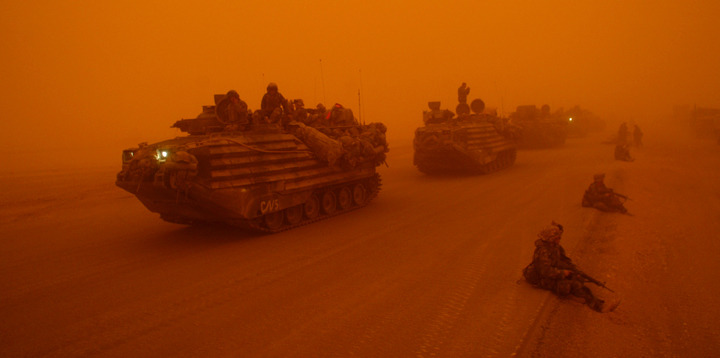|
2002
- Based on USIP's extensive experience in the Balkans, USIP peacebuilding experts brief the U.S. Defense Policy Board on the need for a civilian police force to control civilian violence in the aftermath of U.S. military intervention.
2003: The Institute provided significant immediate conflict stabilization support to the American mission in Iraq.
- USIP’s Professional Training director serves as the coalition coordinator for humanitarian assistance in Iraq in the planning and initial phases of Operation Iraqi Freedom from February to June.
- USIP is operational in Iraq three weeks after the ground war phase ends. Building on collaboration with leaders of Iraq’s exile community for two years before the war, the Institute’s Rule of Law Program director works throughout the spring and summer in Iraq with jurists and coalition officials on rebuilding the legal system and on the design of post-war justice in Iraq—organizing the tribunal for bringing leaders of the Saddam Hussein regime to justice
- USIP fellow Phebe Marr, one of the world’s leading experts on Iraq, actively supports national policy and planning with balance and insightfulness. Marr would later testify before the Senate Foreign Relations Committee on "Advancing Iraqi Political Development."
- USIP civil society partnerships to promote religious tolerance and condemn political violence facilitate the negotiated release of seven Western hostages.
- USIP-trained civil society and local government officials manage conflicts in mixed communities, and USIP trains Iraqi national security officials in problem solving, negotiation, and working with third parties. The Institute places particular emphasis on participation and empowerment of marginal and disadvantaged groups, including the disabled, women, and minorities.
<< Index | Index | 2004 >>
|
